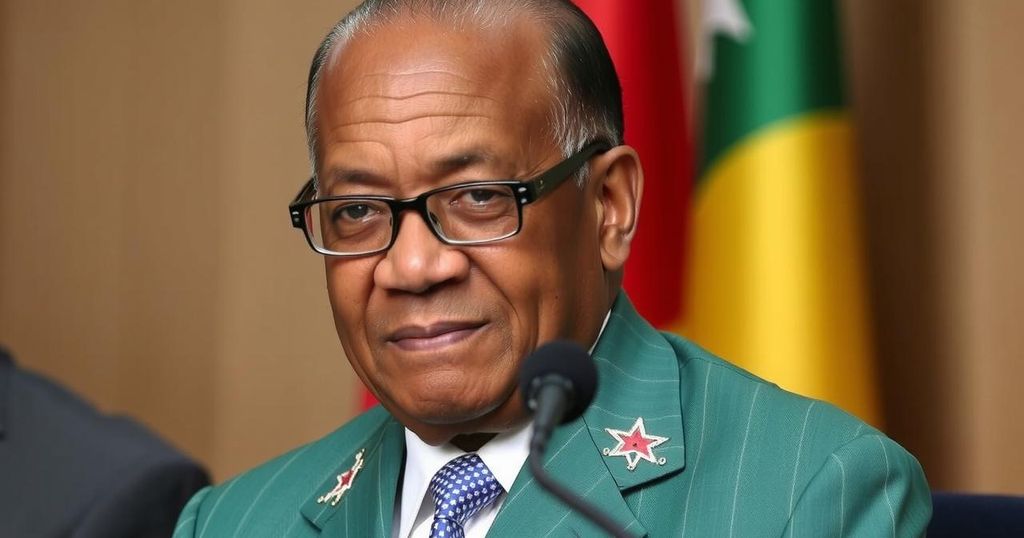Desi Bouterse, former President of Suriname, died at the age of 79. He had been convicted for the 1982 killings of 15 political opponents and served a 20-year sentence. Bouterse initially seized power in a 1982 coup and later returned to the presidency through elections in 2010. His legacy remains controversial due to human rights abuses and drug trafficking connections.
Desi Bouterse, the former President of Suriname, has passed away at the age of 79 at his undisclosed location within the country, according to reports. His demise led to gatherings outside both his residence and the headquarters of his political party, the National Democratic Party (NDP). A year prior, Bouterse was sentenced to 20 years in prison for his role in the 1982 killings of 15 political adversaries during his military dictatorship, which lasted until 1987. He later returned to the presidency after winning elections in July 2010, marking a controversial legacy in Surinamese politics.
Bouterse was known for a bloodless coup that established his control in the early 1980s, and despite his conviction, he maintained political influence in the region. Relationships with other political entities were evident, as he and the NDP collaborated closely with Guyana’s opposition, particularly the People’s National Congress Reform (PNCR). The collaborative efforts included joint initiatives concerning border disputes and resource management. Notably, leaked diplomatic cables from the United States suggested that Bouterse had received support from the notorious drug trafficker Shaheed ‘Roger’ Khan, who had sought refuge in Suriname after fleeing criminal charges in Guyana.
Bouterse’s political career has been marred by allegations of human rights abuses and links to drug trafficking. His actions during his regime and subsequent affiliations have left a complex and contentious political legacy that continues to influence Suriname’s socio-political landscape. The former president’s ability to garner support despite his convictions raises questions about accountability and justice within the region’s political framework.
Desi Bouterse served as the President of Suriname and was a prominent military leader, having led the country following a coup in 1982. His time in power was marked by significant human rights violations, including the execution of political opponents. Despite these serious allegations, Bouterse was elected president again in 2010. His administration has been characterized by controversial alliances, particularly with political factions in Guyana, and notable connections to individuals implicated in drug trafficking.
The passing of Desi Bouterse marks the end of a significant and polarizing chapter in Suriname’s political history. His life was characterized by both military control and electoral politics, coupled with a complex legacy involving serious human rights violations and drug trafficking associations. Bouterse’s actions and alliances will likely continue to incite discussion and examination of political accountability and governance in Suriname and the broader Caribbean region.
Original Source: demerarawaves.com






